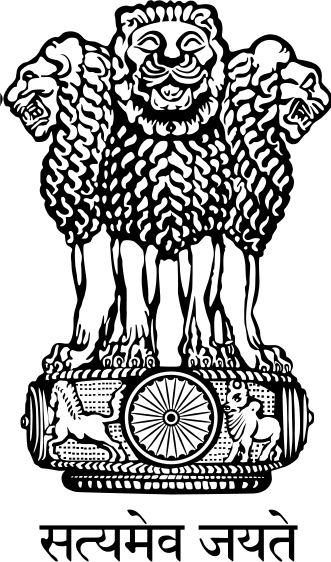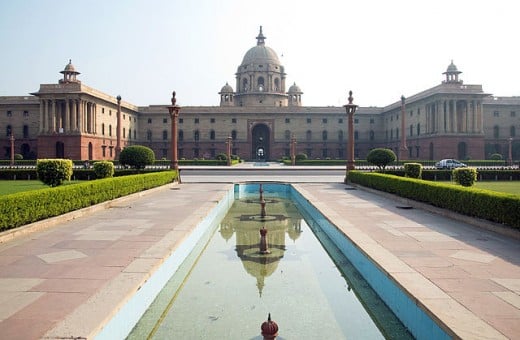How to be an IAS Officer?

IAS stands for Indian Administrative Services. They are selected through the Civil Services Examination conducted by the Union Public Service Commission (UPSC).
To know the procedure of becoming an IAS officer, you should have some concept about the IAS examination. The examination which is regarded as one of the toughest exam of the world! Yes, it is a really, really tough nut to crack.
Every year lakhs of applicants fill up the form to give the Civil Services of Examination. Only 800 to 1000 got selected for the posts. You must also consider the fact that these are not a motley group of educational underachievers. Thousands of highly qualified doctors and engineers also fight hard to be IAS officers. There are hundreds of aspirants from the prestigious institutes like IITs and IIMs.
Civil Services Examination
So, you know that there is an examination called as Civil Service Examination (CSE). It is actually based on the British era ICS. Let us get some quick info about the exam:
CSE is not only for selecting IAS officers. There are various other all India and central group A services select their officers from the exam. The services are listed below:
1) IAS: Indian Administrative Service
2) IPS: Indian Police Service
3) IFS: Indian Forest Service
4) IRS: Indian Revenue Service ( IT, Custom and Central Excise)
5) IAAS: Indian Audit and Accounts Service
6) IRTS: Indian Railway Traffic Service
7) Indian Postal Service
8) IDAS: Indian Defense Accounts Service
9) ICAS: Indian Civil Accounts Service
10) Indian Ordnance Factories Service
11) IRAS: Indian Railway Accounts Service
12) IRPS : Indian Railway Personnel Service
13) Asst. Security Commissioner of RPF (Railway Protection Force)
14) Indian Defense Estates Service
15) IIS: Indian Information Service (Junior Grade)
16) Indian Trade Service, Group 'A'
17) Indian Corporate Law Service
Group B Services
1) DANICS: Delhi, Andaman & Nicobar Islands, Lakshadweep, Daman & Diu and Dadra & Nagar Haveli Civil Service
2) DANIPS: Delhi, Andaman & Nicobar Islands, Lakshadweep, Daman & Diu and Dadra & Nagar Haveli Police Service
3) Armed Forces Headquarters Civil Service (Section Officer's Grade)
4) Pondicherry Civil Service
5) Pondicherry Police Service.

Age and Eligibility Criteria of Civil Services Examination
The highest age of applying for the CSE is always a highly debated subject. There are always some groups who want to bring down the highest age limit to 26 for general candidates. That limit was 32 in 2014.
According to the UPSC notification of 2014 the age limits for various categories are as follows:
Category
Gen : Min 21 Max 32
SC: Min 21 Max 37
ST: Min 21 Max 37
OBC: Min 21 Max 35
The age should be calculated before 1st August of the exam year. For example, if the age limit remains unchanged in 2015, an eligible candidate should have her birth date between 02.08.1983 and 01.08.1994.
Eligibility
The candidate should be a citizen of India for IAS and IPS.
For other services citizens of Nepal and Bhutan are also eligible.
The candidate should be a graduate in any stream from a UGC recognized university. There are no minimum marks to appear in this exam.
Holders of professional degrees like MBBS, B.Tech, B.Farm, B.T., BBA, BCA etc are also eligible for CSE.
Number of Attempts
There are limits in the number of attempts to appear in this exam. These numbers are as listed below:
Gen: 6
SC: Unlimited
ST: Unlimited
OBC: 9
The Pattern of the Civil Services Examination
There are three stages of the exam: Preliminary, Mains and Interview. All three stages are important.
The Preliminary Examination
The Preliminary Examination or Prelims is the 1st stage of the elimination process. Most of the applicants will be thrown out form the competition at the preliminary stage.
Another name of the Prelims is CSAT.
- There will be two papers in CSAT – Paper I : General Studies and Paper II: Aptitude Test
- The 1st papers questions are based on mainly important current affairs, Indian history and geography, economy, science, environment etc.
- The 2nd papers questions are from English, Math and Reasoning.
- There are 200 marks in each paper, so the total marks of the prelims is 400.
- The questions will be multiple choice MCQ types.
- The question paper will be set in both Hindi and English languages.
- The time of exam is two hours for each paper.
- Candidates should not take the prelims lightly because the question level of this examination is becoming tougher in every year. Extensive study is a must to clear this stage.
The Main Examination
The toughest part of the Civil Services Examination is the Mains examination. The Mans papers will be of conventional written types.
There will be the following paper in it:
Paper A (Qualifying): One of the Indian languages listed in the 8th Schedule of the Constitution i.e. Hindi, Bengali, Tamil, and Guajarati etc. 300 Marks
Paper B (Qualifying): English language. 300 Marks
Paper I: Essay 250 Marks
Paper II: General Studies I (250)
Paper III: General Studies II (250)
Paper IV: General Studies III (250)
Paper V: General Studies IV (250)
Paper VI: Optional Paper I (250)
Paper VII: Optional Paper II (250)
The Optional Subjects
There will be one optional subject in which there will be two papers. The syllabus of this subject will be of Master Degree level. The list of these subjects is as follows:
(i) Agriculture
(ii) Animal Husbandry and Veterinary Science
(iii) Anthropology
(iv) Botany
(v) Chemistry
(vi) Civil Engineering
(vii) Commerce and Accountancy
(viii) Economics
(ix) Electrical Engineering
(x) Geography
(xi) Geology
(xii) History
(xiii) Law
(xiv) Management
(xv) Mathematics
(xvi) Mechanical Engineering
(xvii) Medical Science
(xviii) Philosophy
(xix) Physics
(xx) Political Science and InternationalRelations
(xxi) Psychology
(xxii) Public Administration
(xxiii) Sociology
(xxiv) Statistics
(xxv) Zoology
(xxv) Literature of any one of the following languages:
Assamese, Bengali, Bodo, Dogri,Gujarati, Hindi, Kannada, Kashmiri,Konkani, Maithili, Malayalam, Manipuri,Marathi, Nepali, Oriya, Punjabi, Sanskrit,Santhali, Sindhi, Tamil, Telugu, Urdu and English.
The Interview
After the mains, only handful of candidates will be short listed for an interview. The candidates are asked to fill up a form in which they will have to give details about themselves. Questions are asked about various topics like current events, the candidate’s optional subjects, his / her state, his / her background, personal hobbies etc.
The interview carries 300 marks. The interview is a personality test and so UPSC prepares interview panels with highly qualified persons to judge the would-be administrators.
Conclusion
The tough as hell examination conducted by the UPSC is the gateway to the hallowed world of the IAS. If you can clear all the stages of this exam, you can be an IAS too.
In the exam of 2013, there were total 1122 posts. Among these 1000+ posts, only 180 was for IAS ( 90 UR, 27 SC, 14 ST, 49 OBC). In 2012, the last General candidate who got the IAS was rank 116. So, one aspirant of General category needs to get a rank less than 100 in the exam to be sure to bag IAS.







